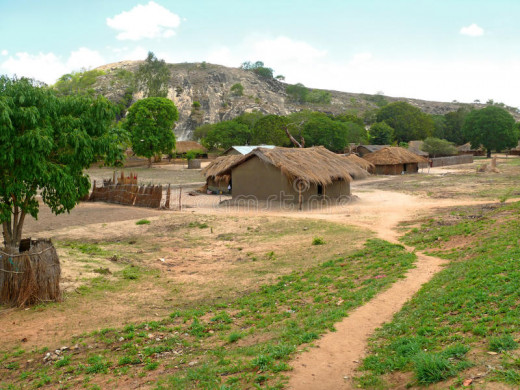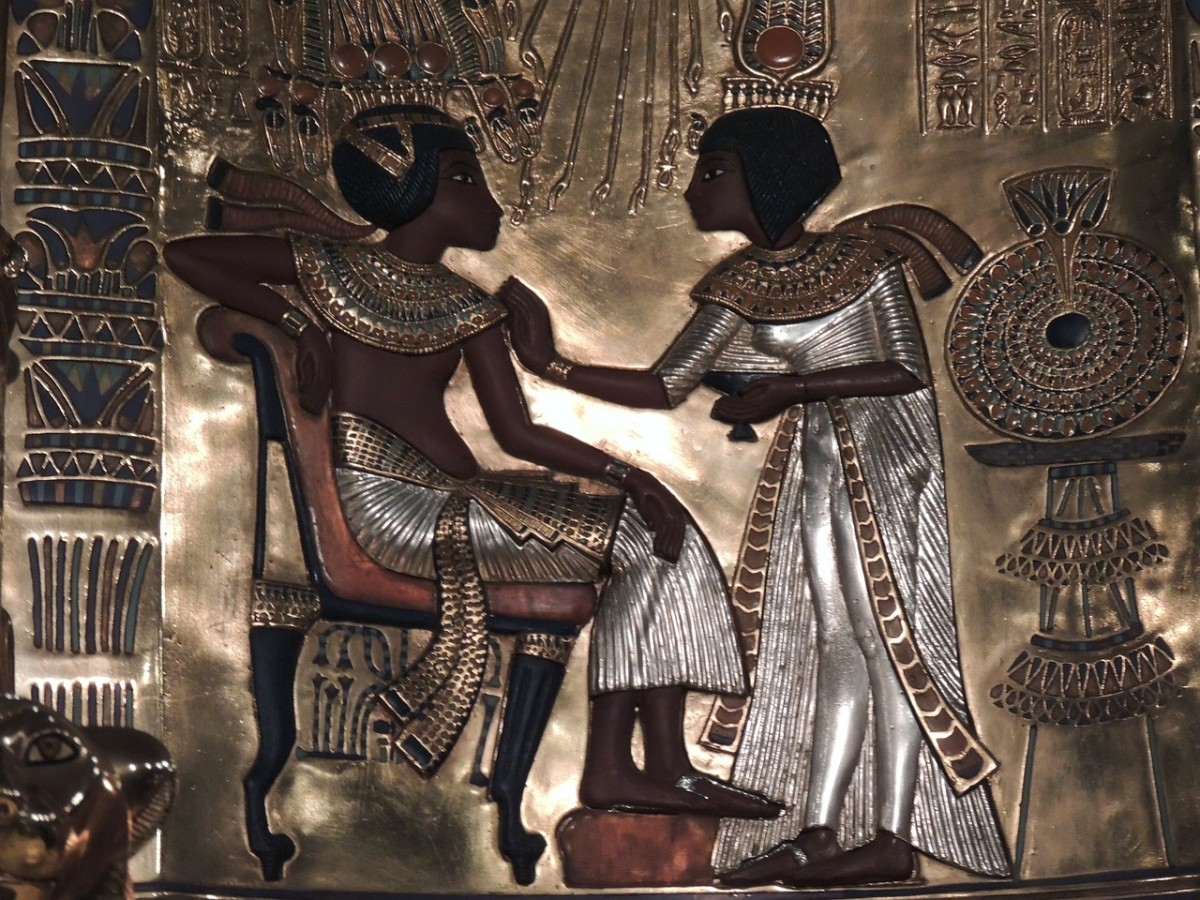The Osei's Wife Solves a Problem

The Basis
As I see his face I think, “Ah, he knows.”
As he did not question why I included my youngest maid for the long travel, his unawareness was louder than thunder.
He did not question why I took this baby, born in that far region into my house. I consider that either the Osei knew all things, or was oblivious to all things.
It is not uncommon for the wife of the Osei to adopt children from distant parts of our realm to bring such village closer.
I would find a name from the Osei's lineage to grant the child. Mfundi may be many many days walk from the Osei's village, but a child of Mfundi lived in the Osei's village as part of the Osei's lineage..
It was 'political' to use the modern word.
Naming
I called the child Ntombi. That had been the name of his sister who died in the great destruction, along with all his family, save he and his youngest brother, Sigama.
I could not elect a name from my lineage, I was of a most foreign tribe. Although I was treated with honour by the people, the children I bore were mizrans, a caste just above slave. They could never rule nor marry into the Royal class for three generations.
The Osei's brother, Sigama, had married into the Royal Class. Married and fathered many children. Sigama would be Osei when Dimani relinquished. And after him one of his sons.
Dimani’s love for me greater than his love of power, than his love of family. Although our love was in songs and poems were it not for Sigama, his lineage would end with him, and the next Osei of another bloodline.
Dimani did not understand that Sigama had not found a morsel of love for his wife. He went into her each season, she produced a child, and when auspicious, he returned. But Sigama spent much time in our house, for he had been so young when all were lost I was more his mother than wife of his brother.
Dimani has been silent, as is his nature, and it was long after he had finished the tea I had given him and I rose to grant another portion that he asked, very softly, “When did you know?”
Although I am one who can fill a day with words, when Dimani is in this spirit less words are better.
“Before.”
His eyes bored into mine, and because I ‘owned his soul’, (which is how his language describes the love which exists between a husband and a wife when it is perfect...and despite much talk few are perfect) I returned his gaze.
He rose to go into the field, glancing at me over his right shoulder, to follow.
In Privacy
When one speaks of certain things, one must be certain there is no other ear. To sit back against back where no approach can be unseen is how his people do this.
Many eyes watch us and seeing our direction know to remain where they are, for Dimani and I will engage in ‘significant conversation’.
We walk for many heartbeats until the village is small in our eyes. He seats upon a flat rock and I behind him. My flesh always thrills at his touch, as his does with mine, for our love is perfect.
“Omit nothing,” he says in a tired voice, for this is not the first time something of great import in which I am entwined has transpired.
“Sigama would seal his life, his soul ungiven to persist your blood.”
I suspect Dimani did not know this.
“He had come to our house an evening as is frequent and saw Karabo and she saw him.”
Sigama had seen Karabo from first entrance to our house seasons gone. Dimani knew I meant the other kind of seeing and in his tired voice; “And you afforded them opportunity and access.”
I do not need to answer. But there is one fact he might not own: “Ntombi is their child.”
“Eeee ah!”
Now that the words were unbound he could fit them into the pattern of days, why we traveled when we did, why Karabo included, why she was unseen for much of the journey, why I would take a baby into my house and not place her into the house of another, and why I seemed to love her as I did the children of my body.
Dimani is angry at himself for not uncovering plot in early season. I feel his back grow hard, his breath be forced from his body, and his thought jumble as they climb one upon another.
“I am Osei, Zinzi, how can I honour illegality?”
Although others may have many wives and father children from many bodies, to be Osei one must have one wife to whom he grants his soul. Those who scatter their seed are flung from the Royal Caste.
Had I not performed so many heroic deeds so that I was adopted by his people and given an ‘acceptable name’ in their language, his marriage to me would have not merely have cost him Osei but he would be flung from the tribe into the forest, a man without lineage, with no name, non-existent. The worst fate, for death would end ignominy and allow his soul to be born into another body.
But I was a great hero, an honoured member of the tribe, with a name that connected me to highly respected lineages, so our marriage was accepted, as our children will not be. Not our children, not their children, and only if the children of our children mate with those of great honour will their children be full members of society.
In Time
I let the breeze play its time before releasing my answer; “You do not know of it.”
“And we will travel again so that another child whose lineage I do not know will come into my house?”
“That is the only knot in the cord.” I reply.
“Even if I do not know of what has passed I can not be ignorant of what is to come.”
“Yes, I have pondered that.”
“Have you pondered Karabo marrying into a suitable house?”
“The idea cost Sigama many tears and has been discarded.”
“Have you pondered Karabo relocating to a distant village?”
“That also wrung many tears from Sigama.”
“And Sigama’s wife?”
“She is unaware.”
“And of that you are assured?”
“Of that I am assured.”
“He can not marry her, she can not marry another, he can not relocate, she can not relocate, and their daughter is of my household, to grow and be married to one of my kinsmen, and all sealed into silence.”
“Yes.”
“As long as Karabo bears no further children.”
“Yes.”
“Since I know nothing of this, it is you to ensure that Karabo brings forth no more children.”
And my husband rose and began to walk towards the centre of the village.





